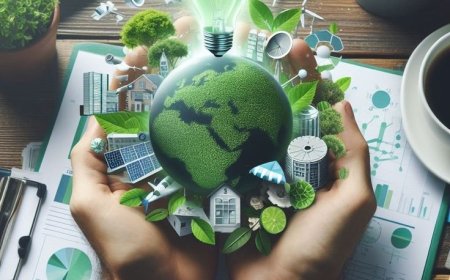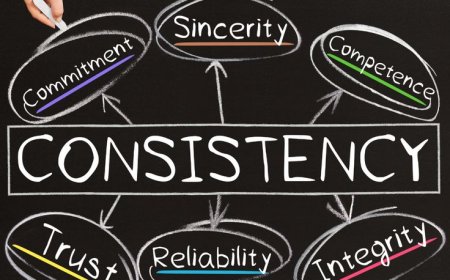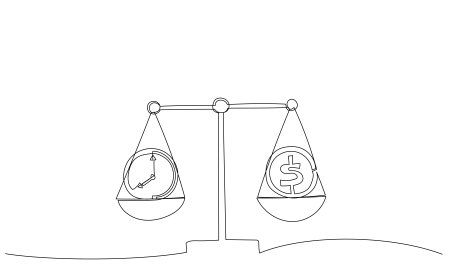Green & Sustainable Business Models in India
How Indian companies are turning sustainability into strategy — and profits.

On a sun-drenched morning in Rajasthan, rows of sleek solar panels glimmer against the golden desert sand — quietly generating enough electricity to power thousands of homes and factories. Hundreds of kilometers away, in a buzzing workshop in Pune, engineers at an EV startup are assembling the next generation of electric scooters, their workstations powered by renewable energy.
These aren’t isolated stories. They’re glimpses of a larger transformation reshaping how India does business. Sustainability, once seen as a “good-to-have” CSR initiative, has now become a core business strategy.
The world is waking up to the costs of unchecked growth — from extreme weather and resource depletion to mounting carbon footprints. As global supply chains and investors tighten their sustainability standards, Indian companies are realizing that “going green” is no longer optional — it’s essential.
At the same time, consumers are changing too. A growing number of Indians — especially the urban and younger generation — want to buy from brands that care about the planet. The result? A quiet but powerful shift where environmental responsibility meets economic opportunity.
And this raises a pivotal question:
Can going green be profitable?
Across industries, Indian businesses — from legacy conglomerates to scrappy startups — are showing that it absolutely can. For them, sustainability isn’t just about saving the planet. It’s about building resilience, unlocking innovation, and staying competitive in a rapidly changing world.
Why Sustainability is Now a Business Imperative
The green movement in India isn’t driven by idealism alone. It’s powered by a combination of policy, profit, and pressure.
Let’s break down the key forces behind this transformation:
Regulatory Push
The Indian government has made its sustainability intentions clear.
India has pledged to achieve 500 GW of renewable energy capacity by 2030, and reach net-zero emissions by 2070. These are not just ambitious goals — they are shaping how industries operate.
New ESG (Environmental, Social, and Governance) norms now require top-listed companies to disclose their sustainability performance. Sectors from energy to manufacturing are under growing scrutiny to show tangible progress on emissions, waste, and water use.
Investor Expectations
Sustainability has become a key filter for investment decisions.
Global institutional investors are increasingly aligning with ESG frameworks, preferring companies that demonstrate environmental responsibility. According to CRISIL’s 2024 report, over 80% of institutional investors in India now consider ESG performance before investing.
In short: Green credibility is the new financial currency.
Consumer Demand
Indian consumers are becoming more aware and discerning. A recent Deloitte study found that 57% of urban consumers prefer brands that are eco-friendly or ethically produced. Whether it’s buying EVs, supporting organic food brands, or choosing plastic-free packaging — purpose-driven consumption is on the rise.
For brands, this means sustainability is no longer just a corporate responsibility; it’s a competitive advantage.
Operational Advantage
Beyond perception, going green makes good business sense.
Energy-efficient buildings, renewable power sources, and circular supply chains are helping companies reduce long-term operational costs.
For example, businesses adopting solar rooftops or waste recycling systems are reporting significant savings in energy and waste management bills.
India’s renewable sector itself is booming — the International Energy Agency (IEA) ranked India among the top 5 countries globally for renewable energy growth in 2024.
All these forces together are making sustainability the new growth engine — not just for ethical reasons, but for strategic survival.
Leading the Change: India’s Green Business Pioneers
India’s sustainability story is not confined to boardroom pledges — it’s being written on factory floors, farmlands, and startup incubators. Let’s look at some of the companies and innovators leading the way:
Tata Group: From Legacy to Leadership
Tata Group has woven sustainability into the fabric of its operations. Tata Steel is one of the first in India to invest heavily in green steel technology, reducing emissions through hydrogen-based manufacturing. Tata Power, meanwhile, is a major driver in India’s renewable revolution — contributing significantly to the national solar and wind capacity.
Their message is clear: sustainability and scale can grow hand in hand.
ITC: The Sustainability Trailblazer
Long before “ESG” became a buzzword, ITC was setting benchmarks. The company is carbon-positive (since 2006), water-positive, and solid waste recycling positive — an impressive feat for a conglomerate of its size.
Through initiatives like sustainable paper manufacturing, renewable energy, and rural sourcing, ITC shows how business growth can align with environmental stewardship and social impact.
Infosys & Zerodha: Tech-Driven Green Models
Infosys has achieved carbon neutrality across its operations, investing in energy-efficient campuses and renewable power. Zerodha, India’s largest stock brokerage, operates fully carbon-neutral offices and funds environmental initiatives through its “Rainmatter” foundation — supporting startups focused on climate solutions and sustainable living.
These examples highlight a new kind of corporate mindset — where profitability coexists with purpose.
Startups Powering Green Innovation
India’s startup ecosystem is buzzing with sustainability-led innovation:
- Phool — recycles temple floral waste into incense sticks and biodegradable packaging.
- Ather Energy — one of India’s leading EV manufacturers, driving clean mobility adoption.
- Graviky Labs — turns carbon emissions into usable ink (“Air Ink”).
- Bare Necessities — promotes zero-waste consumer products.
Agritech & Circular Economy Pioneers
In rural India, agritech startups like DeHaat and Ecozen are helping farmers switch to sustainable practices through solar-powered cold storage, organic inputs, and efficient supply chains.
Meanwhile, circular economy ventures are finding innovative ways to turn waste into value — from recycled plastics to upcycled fashion.
Together, these businesses — large and small — are proving one thing:
Sustainability isn’t a constraint; it’s a catalyst for creativity and competitiveness.
The New Green Business Models Emerging
As sustainability moves from the sidelines to the center of strategy, Indian businesses are reimagining how value is created, delivered, and sustained. Let’s look at the new models shaping the future:
Circular Economy: Waste as Wealth
The “take-make-dispose” model is being replaced by “reuse, recycle, regenerate.”
From fashion brands like Doodlage using fabric waste to create new apparel, to Banyan Nation recycling plastics into industrial-grade materials, companies are showing that circular thinking is both practical and profitable.
Even large manufacturers are now designing products with end-of-life recovery in mind — a trend known as design for recyclability.
For instance, Tata Motors is piloting vehicle recycling units that reclaim usable metals and components, reducing both waste and raw material costs.
Renewable Energy Integration
Businesses are turning into producers of clean energy.
Warehouses, factories, and office parks across India are installing rooftop solar systems, not just to reduce their carbon footprint but also to cut power bills dramatically.
Companies like ReNew Power and Adani Green Energy are spearheading corporate renewable energy supply agreements, making green power accessible to small and medium enterprises (SMEs).
Sustainable Agriculture & Food Systems
In agriculture, sustainability is taking root from farm to fork.
Brands like Nourish Organics, Sresta (24 Mantra), and Farmizen are building supply chains based on fair trade, organic cultivation, and minimal processing.
These models aren’t just good for the planet — they build consumer trust and long-term brand equity.
Green Mobility
India’s EV wave is more than a trend — it’s an economic transformation.
Startups like Ola Electric, Ather Energy, and BluSmart Mobility are leading this change with electric scooters, cabs, and charging networks.
Meanwhile, logistics players such as Delhivery and Ecom Express are gradually electrifying their delivery fleets to reduce emissions and fuel dependency.
ESG-as-a-Service & Green Finance
A new ecosystem of sustainability consultants, fintechs, and impact funds is emerging to help businesses go green.
Platforms like ESG Risk.ai, Climes, and SustainKart are offering tools that measure, offset, or finance sustainability goals.
The rise of green bonds and impact investing is channeling billions into renewable energy, waste management, and water conservation projects.
In essence, sustainability is not one model — it’s a mindset shift.
Businesses are realizing that the future belongs to those who can grow responsibly and profitably at the same time.
The Challenges to Going Green
Of course, the green transition isn’t without hurdles.
For every success story, there are companies struggling with costs, compliance, and culture.
High Initial Costs
Switching to renewable energy, sustainable packaging, or cleaner technology requires significant upfront investment.
While larger corporations can absorb this, small and medium enterprises (SMEs) often find it hard to justify the expense, even if it pays off in the long run.
A 2024 CII survey found that over 60% of SMEs in India cited “high capital cost” as the biggest barrier to adopting sustainable practices.
Infrastructure Gaps
Many regions — especially Tier-2 and Tier-3 cities — still lack reliable recycling systems, charging infrastructure, or green energy access.
Without supportive ecosystems, even well-intentioned companies face logistical roadblocks.
Policy and Standardization Issues
While India’s ESG regulations are evolving, there’s still inconsistency in enforcement and reporting standards.
Companies often struggle to align their sustainability disclosures with global benchmarks like GRI or TCFD, creating compliance confusion.
Awareness and Skills Gap
A sustainable economy requires a skilled workforce that understands new technologies and green processes.
Yet, many organizations still lack internal expertise in sustainability strategy, life-cycle analysis, or carbon accounting.
The Profitability Paradox
In the short term, sustainability can appear expensive.
Businesses often wrestle with balancing quarterly profits against long-term environmental goals. The mindset shift — from “cost center” to “value driver” — is still in progress.
Despite these challenges, momentum is building. The early adopters are showing that the returns — in brand loyalty, investor confidence, and operational efficiency — far outweigh the costs.
The Road Ahead: Building a Green Economy
India’s green transformation is still unfolding — but its direction is clear.
The question now is not if businesses will go green, but how fast and how deeply.
Policy Acceleration
Government initiatives like PM-KUSUM, National Green Hydrogen Mission, and PLI (Production Linked Incentives) for solar and EV manufacturing are setting the stage for large-scale adoption.
If executed well, these programs could make India a global hub for clean energy technology by 2030.
Green Financing & Carbon Markets
The rise of green bonds, ESG funds, and carbon credit trading is opening up new financing routes for sustainability projects.
By 2025, India’s green finance market is expected to cross $100 billion, according to FICCI.
This financial backing is crucial to help smaller businesses scale sustainable solutions.
Innovation and Collaboration
The future of sustainability lies in cross-sector collaboration — between government, industry, and startups.
We’re already seeing partnerships between corporations and cleantech startups to solve issues like waste-to-energy, smart grids, and water reuse.
As technology costs fall and innovation scales, green solutions will become mainstream rather than niche.
Consumer-Driven Change
Ultimately, consumers will be the deciding force.
When people choose eco-friendly brands, sustainable fashion, or renewable-powered services, they push the market toward responsibility.
The more sustainability becomes a part of daily buying decisions, the faster businesses will adapt.
Wrap-Up: From Obligation to Opportunity
Sustainability is no longer just a moral choice — it’s a strategic one.
Indian companies are realizing that the path to profitability and purpose can be the same road.
From the deserts of Rajasthan to the tech corridors of Bengaluru, from EV startups to legacy giants, the message is clear:
The future of business in India is green — not just because it must be, but because it can be.
And as India marches toward a $5 trillion economy, its greatest competitive edge might not just be its scale —
but its ability to grow sustainably, inclusively, and responsibly.
What's Your Reaction?
 Like
1
Like
1
 Dislike
0
Dislike
0
 Love
0
Love
0
 Funny
0
Funny
0
 Angry
0
Angry
0
 Sad
0
Sad
0
 Wow
0
Wow
0





































































































































































































